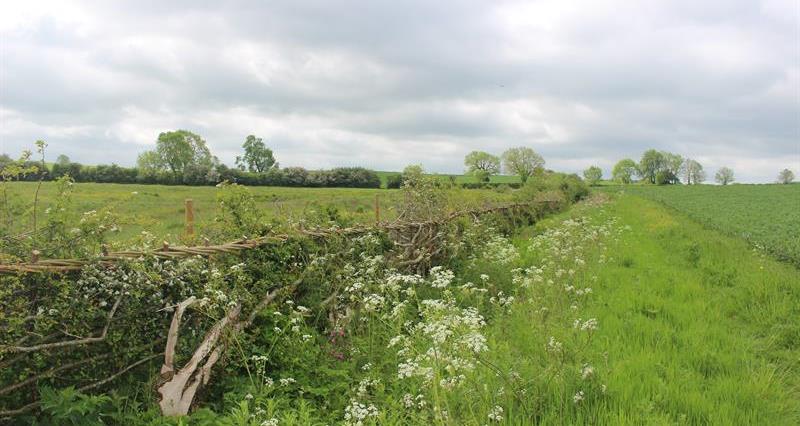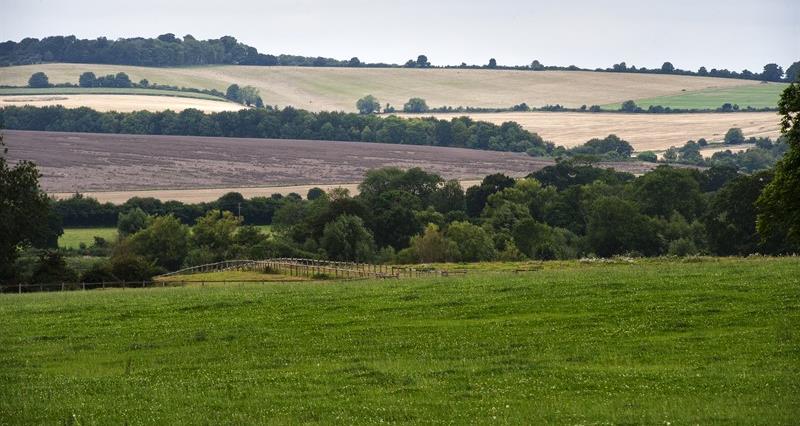The SFI actions available cover many different environmental issues from protecting watercourses and improving soil organic matter, to improving habitats.
The challenge is working out which ones work for your business.
We’ve grouped the offer into different headings to help make it more tangible.
Planning
Working out what you’re dealing with is a good starting point before you create an application.
Soil management, nutrient management and IPM (Integrated Pest Management) plans help you manage your risks more effectively.
They can help you reduce nutrients and potential impacts on the environment – SFI provides payments for these. Collectively, it’s worth £1,800.
SFI has actions to improve soil health such as legume fallows and herbal leys, reduce erosion (e.g. cover crops), and support the delivery of good IPM practices (e.g. companion cropping and insecticide free).
Field boundaries
There are payments available for managing hedgerows in an environmentally friendly way.
There’s a payment for assessing your hedgerows to enable you to identify the right management approach according to the current condition of the hedge.
The boundary offer covers stone walls in good condition and earth banks. If you need to improve the condition of your boundary, capital grants are available.
Just working through an example of a 10ha field surrounded by a hedgerow (2,200m of hedge), for undertaking all three SFI hedgerow actions on both sides of the hedge (worth £46/ 100m) you can secure a payment of £1,000.
‘In-field’ SFI actions
There are a range of SFI activities you can do within the cropped part of the field.
In addition to those already mentioned, there are actions such as early harvested maize with a following cover crop, low input cereals and the provision of overwintered stubble. On grasslands, there are legume leys and winter bird food.
There are in-field actions that take areas out of production to support insects and provide habitat for specific birds. These include beetle banks, skylark and lapwing plots.
Margins, field corners and edges
On many farms, the edges and awkward field corners are the least productive areas.
These may be appropriate for some SFI actions that create a wildlife habitat. These could be arable field margins such as pollen and nectar mixes or grassy corners.
Buffer strips
Where you have ponds, watercourses, in-field trees or other farmed environment features, there are several buffer strip options available.
These are to improve water quality, prevent run off or protect in-field trees.
The wider offer
The offer is more extensive than outlined above, covering habitat like moorland and agro-forestry.
There are a number of grassland supplements (e.g. native breeds at risk) accessible on low input grasslands, species rich grasslands and rough grazing for birds.
Soon, the Higher Tier offer should be published covering more technical habitats.
FINDing the right actions
Defra has created an to allow you to search the actions and find appropriate ones for your farming system.
It is important that you read these to understand the requirements of each action – the ‘where’, ‘when’ and ‘what’ you need to do. This does include understanding the environmental aims and the record-keeping requirements.
What else to consider?
Before starting to apply, you also need to consider whether you’ve got SSSIs or historic and archaeological features present.
If you include these areas in an application, you may need consent and for historic features you will need to download a HEFER (Historic Environment Farmed Environment Record). These may restrict your action choice.
As part of your approach to IPM, you need to consider how the actions may impact on weed and pest burdens. For example, are you creating a green bridge between crops? Many of the SFI actions could have benefits for IPM.
Through putting a suite of SFI actions together on your farm you can think about how it supports species through all seasons, providing food and habitat. For example, there are winter bird food options to support farmland birds through the hungry gap.
Finally, you need to consider if this makes financial sense for your business. All the SFI actions incur costs to deliver.




